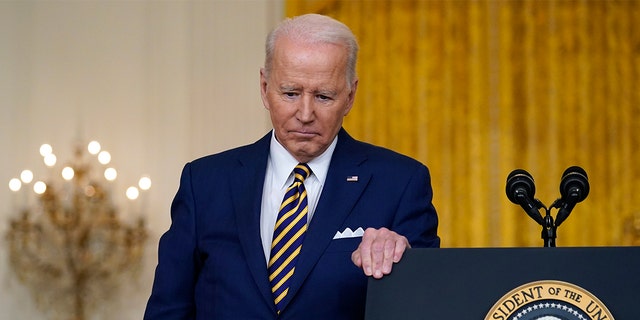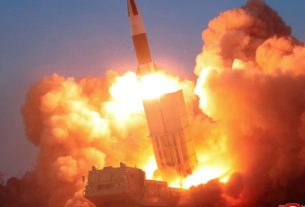In response to increasing concerns over North Korea’s military involvement in the Ukraine conflict and its growing nuclear threat, U.S. President Joe Biden is meeting today with the leaders of South Korea and Japan to discuss a coordinated strategy. The trilateral summit aims to formulate a unified response to North Korea’s deployment of troops to assist Russian military efforts in Ukraine and its ongoing advancements in nuclear weapons development.
This critical summit, held amid rising regional tensions, will focus on strengthening trilateral security cooperation between the U.S., South Korea, and Japan, and addressing the geopolitical ramifications of North Korea’s increasing support for Moscow.
North Korea’s Growing Support for Russia’s War in Ukraine:
Reports have confirmed that North Korea has sent thousands of troops to Russia to assist in the war against Ukraine. U.S. intelligence sources indicate that these North Korean troops are providing vital military support in areas such as artillery operations, missile guidance, and technical training for Russian forces. This marks a significant expansion of North Korea’s military partnership with Russia, a relationship that has steadily deepened over the last year as both countries face intensified Western sanctions.
North Korea’s involvement in the war is part of a broader military cooperation agreement with Russia, which has already included shipments of munitions and artillery to Russian forces. As the conflict in Ukraine continues to intensify, the move to deploy North Korean troops to the frontlines has drawn global condemnation, further complicating international efforts to contain Russia’s military expansion and North Korea’s nuclear threats.
The Nuclear Threat and Regional Security Concerns:
While the deployment of North Korean troops to Ukraine is alarming, nuclear proliferation remains the most pressing concern for the U.S., Japan, and South Korea. North Korea has conducted multiple missile tests in recent months, showcasing its rapidly advancing nuclear weapons capabilities. Pyongyang’s nuclear missile program, particularly its development of intercontinental ballistic missiles (ICBMs), is a direct threat to the security of the U.S. mainland and neighboring countries.
In addition to its missile tests, North Korea has hinted at conducting further nuclear tests, continuing its defiance of international sanctions and agreements aimed at denuclearization. This increasingly aggressive stance is placing additional pressure on the security architecture in the Indo-Pacific region, with Japan and South Korea both within striking distance of North Korean missiles.
For both South Korea and Japan, North Korea’s nuclear and missile programs represent an existential threat, while the U.S. has reaffirmed its commitment to the defense of its allies, underscoring its readiness to counter any potential escalation in the region.
The Trilateral Summit: A Coordinated Response:
The summit between President Joe Biden, South Korean President Yoon Suk-yeol, and Japanese Prime Minister Fumio Kishida is expected to address several key issues regarding the North Korean threat:
- Military Support for Russia: The leaders are likely to discuss how to respond to North Korea’s support for Russia’s military efforts in Ukraine. This includes possible diplomatic and economic measures aimed at isolating both Moscow and Pyongyang on the global stage. The U.S. and its allies are expected to push for increased sanctions targeting North Korean military exports and its support for Russia’s war efforts.
- Nuclear and Missile Programs: Another key topic will be North Korea’s nuclear weapons development and missile testing activities. The three leaders are likely to coordinate efforts to increase pressure on North Korea, calling for the resumption of international negotiations while emphasizing that denuclearization remains a top priority. Increased military cooperation, such as enhanced missile defense systems and joint exercises, will also be discussed.
- Security Cooperation: Given the growing threat posed by North Korea, the summit will focus on enhancing military cooperation between the U.S., South Korea, and Japan. Discussions will likely include the deployment of advanced missile defense systems in the region, as well as joint defense exercises and enhanced intelligence sharing to improve preparedness for potential North Korean provocations.
- Humanitarian and Diplomatic Measures: While security concerns will dominate, the leaders are expected to emphasize the importance of addressing human rights issues in North Korea. This includes the ongoing humanitarian crisis within North Korea, as well as diplomatic efforts to engage the regime while also pushing for its denuclearization.
Global Reactions and Geopolitical Context:
The trilateral summit comes amid rising tensions not only in the Korean Peninsula but also across the broader Indo-Pacific region. North Korea’s support for Russia is likely to complicate the diplomatic landscape, with China remaining a key player in the region’s security dynamics. Beijing’s support for Pyongyang has long been a stabilizing factor for the North Korean regime, but China’s growing alignment with Russia has raised concerns about further entanglement in the conflict.
While South Korea and Japan are fully committed to a coordinated approach, China’s role in influencing North Korea’s decisions remains a critical wildcard. The U.S. is expected to continue efforts to work with China to rein in Pyongyang’s nuclear activities, although Beijing’s reluctance to impose further sanctions on North Korea complicates matters.
Conclusion:
The U.S.-South Korea-Japan summit on Friday, November 15, 2024, marks a crucial moment in the response to North Korea’s military support for Russia and the growing threat posed by its nuclear ambitions. The outcome of the meeting will shape the next steps in regional security cooperation, particularly in terms of military preparedness, diplomatic engagement, and economic pressure on both North Korea and Russia.
The leaders are expected to emphasize unity in the face of shared security challenges, sending a strong message of resolve to North Korea and its allies. As the situation in Ukraine and the Korean Peninsula evolves, the trilateral partnership between the U.S., Japan, and South Korea will be central to addressing the complex security issues in the region.
References:
- The White House – “President Biden Meets with South Korea and Japan Leaders on Regional Security Concerns”
- BBC News – “North Korea’s Military Support to Russia: A Growing Regional Threat”
- Reuters – “Trilateral Summit to Address North Korean Military Aid to Russia and Nuclear Concerns”
- Yonhap News – “Biden, Yoon, Kishida to Coordinate on North Korean Support for Russia and Regional Security”
- The New York Times – “U.S., South Korea, and Japan to Strengthen Cooperation Amid North Korean Threats”



